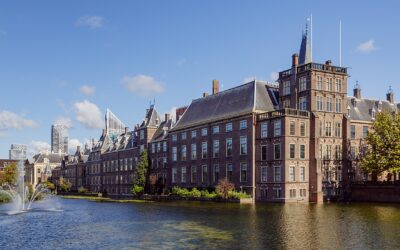
Short history about the arrival of first French people in Korea:
It is known that there were no bilateral relations between France and Korea until 1886. The contact between the two countries was limited to a few sailors and missionaries. The first French missionary in Korea was Father Pierre Maubant, who arrived in 1836. The missionaries came to Korea with the purpose of spreading Catholicism, but the Western religion wasn’t welcomed by the dynasty in power and the missionaries were punished. The French Navy then launched a limited retaliatory action, which was allowed under international law at the time. It seized 297 volumes of Korean protocol archives, which had traditionally been prepared in several copies, on Kangwha Island and deposited them in the National Library. That moment in time is considered as being the first cultural and military contact between France and Korea.
Diplomatic relations established nearly 130 years ago:
Diplomatic relations began on June 4, 1886, when a treaty of friendship, commerce and navigation was signed between Korea and France. The following year, Victor Collin de Plancy, the first official representative of France, took office in Seoul. He served there until 1906, a period of about 15 years, if the 5 year break in his stay is taking into account, during which he was replaced by Hyppolite Frandin (1890-95).
The staff of the France embassy in Korea remained very modest during this period, since they were limited to two people: the head of post and an interpreter, Maurice Courant, considered today as the father of Korean studies in France.
These promising beginnings were interrupted for more than 40 years (1906-49) by the loss of sovereignty of Korea and the consequences of the Second World War on the Peninsula. Therefore, there were no French diplomatic agents in Korea during this period. However, to show solidarity towards Korea during this period of time, France hosted in Paris for a year, in 1919, a delegation of the Korean Government in exile, which had been formed in April 1919 in Shanghai. The embassy of France in Korea was later reopened in 1949.
The significant moment for the Franco-Korean relations is the Korean War (1950-53), when France stood for South Korea and fought together with its army. In total, 3.200 French volunteers, mostly from the Resistance and the Free French Forces, came to Korea during the war and 270, nearly one in ten, was killed. While the number of troops dispatched to Korea by France was relatively modest, and its diplomatic efforts were discreet, the French contribution held significance. It underscored the solidarity among Allied powers within the newly-formed NATO framework.
In the early 2000s, the previously understated history of France’s participation began to receive attention, culminating in the establishment of the „Path of the Living Memory of the French Contribution to the Korean War.“ This initiative aimed to enlighten visitors about this often-overlooked chapter of history, preserve collective memory, and foster a deeper bond of friendship between France and Korea.
Several monuments bear witness to this military presence: the monument to the dead of the French Battalion in Suwon, where it was stationed, the stele installed in 2007 in the French section of the United Nations cemetery in Busan, a monument dedicated to the medical commander Jean-Louis, killed while rescuing a wounded Korean east of Hongcheon, and the commemorative plaque at the Seoul War Memorial.
Current relations between France and South Korea:

It was not until 2002 and the football World Cup that there were more French people in Korea (6 to 7000) than during the entire war. But it was undeniably a very different Korea and a completely different atmosphere that the French discovered.
The celebration in 2016 of the 130th anniversary of the establishment of diplomatic relations between the two countries was an opportunity for the general public to deepen their knowledge of the partner countries through a series of flagship cultural events organized in both France and Korea throughout a „France-Korea Year“ that began in September 2015 and ended in December 2016.
Furthermore, the recent Korean wave that took over Europe, and especially France, with food, K-pop, K-drama, and Korean fashion has broadened the interest of young generations about South Korea. This topic will further be discussed in next week’s article where the modern Franco-Korean relations will be addressed.
References
Embassy of France in the Republic of Korea. (2018, February 23). History. Retrieved from Embassy of France in Seoul: https://kr.ambafrance.org/Histoire
Quisefit, L. (2013). The French Participation in the Korean War and the Establishment of a “Path of Memory” in South Korea. Societies, Vol. 3(4), https://doi.org/10.3390/soc3040427, 427-444.
Photos:
https://upload.wikimedia.org/wikipedia/commons/e/e0/Panorama_Paris_December_2007.jpg
and
https://www.ivan-herman.net/Photos/Favourites/images/gimg_0746.jpg



